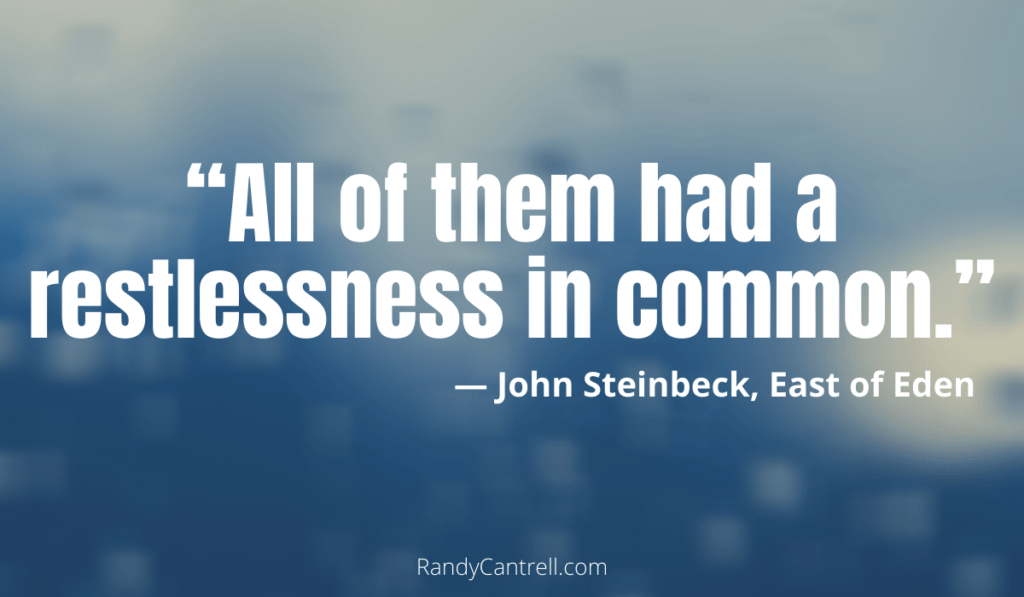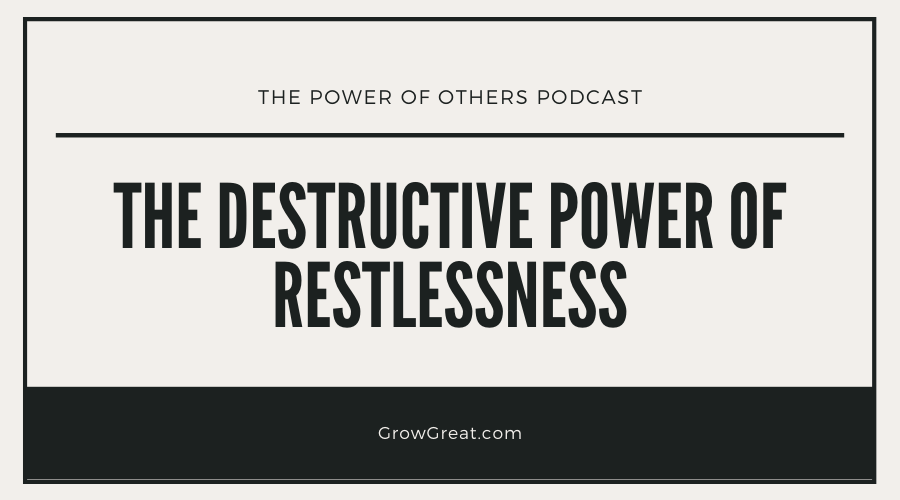Podcast: Play in new window | Download (Duration: 15:01 — 13.7MB)
Subscribe: Apple Podcasts | Spotify | RSS | More
Since I wasn’t alive during the Spanish flu pandemic of 1918, this is my first pandemic experience. But I have experienced disruption. My working life really began during major disruption in the 1970s because of the oil crisis. Thankfully, I was a teen and didn’t know any better (or different). From then until now I’ve encountered numerous downturns that weren’t gentle slopes, but more like rock slides. Maybe that has something to do with how I approach market disruptions. Mostly, I don’t get too preoccupied with them because they’re so much bigger than me.
I don’t remember ever feeling dispair. Uncertainty? Of course, but maybe because I started out as a high-schooler when the economy was awful…I just don’t pay much attention to it. I certainly don’t claim to have some special mental toughness or special gift. Experience and perspective must be the reason.

There is a game that is played far above my level. Sports stopped during the pandemic, but the game of business ramped up to super-major-league levels. Unfortunately, the play happens out of sight of the public. We’re only able to see the score when the game is finished. The winners are business people able to leverage the restlessness of others to their advantage. It’s among the reasons why some companies experience exponential growth during tough times. It’s why others are able to acquire valuable assets at greatly reduced investments. And it’s why others fail and fall off the game board giving increased opportunities to the competition.
Restlessness in markets has an upside if you’re able to take advantage.
Restlessness also has a powerful destructive force in our professional and personal lives. And in our organizations. This is why we have to be more keenly aware of it and work to manage it in our lives and in the lives of the people we serve.
Today I just want to focus on one big element that makes restlessness destructive and see if we can help leverage it, instead, to serve us positively.
Restlessness kills curiosity because we grow increasingly impatient.
This pandemic is an ideal manifestation of it. People are anxious and exhausted. The polarization of opinions is growing. All because we’re restless with the situation. We just want to get past it. Never mind a deeper understanding. Out goes whatever curiosity we may naturally have. And if we lacked curiosity before the restlessness set in, then we’ve ditched it all together now.
The formula is ridiculously simple: curiosity prompts the quest to truly understand, which in turn drives our understanding. Greater understanding arms us with better data from which to make a decision resulting in improved actions, assuming we can execute as we want.
It starts with curiosity, which requires patience. Insert the pressure of “no time” or the perception that we have no time and patience goes down (or away). There goes curiosity.
During this pandemic, I’ve actually heard a phrase uttered by folks who ought to know better. “My mind’s made up.” Translation: I don’t care what you or anybody else says. I already know what I want to do. I don’t have time for any input or insights.
It’s a recipe for a fatal decision. I’m not saying that’s guaranteed, but we dramatically improve our odds of making a very poor and costly decision.
The destruction caused by our unmanaged restlessness goes deeper though. It erodes our relationships. When we lose our curiosity we lose interest in others. We stop caring what they think or how they feel. Selfishness grows. We know what we know and we arrogantly think we know best. Maybe we do. Maybe we don’t. But our restlessness propels our ego forward while shoving other people aside.
How many “smartest guy in the room” people do you know who excel at curiosity and seeking understanding?
Exactly.
None.
Restlessness can contribute to making any of us be like that. We think what we think and we lose our open-mindedness to listen to others. We don’t care what they think, or why. We don’t want to understand their viewpoint because our mind is made up. We already think we know better.
Never mind that we might have it wrong. Think of the consequences of our leadership and influence.
When others see our curiosity dwindle they notice immediately. When others notice we no longer listen to them, we lose our influence. Everybody wants to be heard and understood. Leaders owe that to anybody they hope to serve. It’s especially harmful to us if our restlessness is temporary. We cause long-term damage due to a short-term problem.
So what should we do?
- Be mindful of how you’re feeling and what you’re thinking. You can’t manage restlessness until you first recognize it. Get in touch with how restless you are.
- Gauge your curiosity. It’s the best measurement of the negative impact of your restlessness. When you find yourself not asking questions in an attempt to better understand others, then you know you’re in trouble and need to course correct.
- As good as it feels to think you’re smarter than everybody else, know that it’s a delusion and therefore, dangerous. Don’t view your curiosity as a challenge to your smartness, but a confirmation of it. The more curious you are, the smarter you are. So act curious if you must, but be curious enough to learn more so you can deepen your understanding.
- Go three steps deeper than you may want. When you begin to think, “Okay, I’ve got this. I have everything I need” then dig deep and figure out three more good (or great) questions to ask that can bring you an even deeper understanding.
- Embrace kindness. Your restlessness will cause you be abrupt, harsh and judgmental. Your leadership influence will be tarnished for a very long time if you don’t manage restlessness.
- Care. Care about yourself and your impact. Care about the people you lead. Care about the truth, facts and getting it right. Care enough to foster dialogue and conversation. Most of all, care enough to listen so you understand.
Be well. Do good. Grow great!

